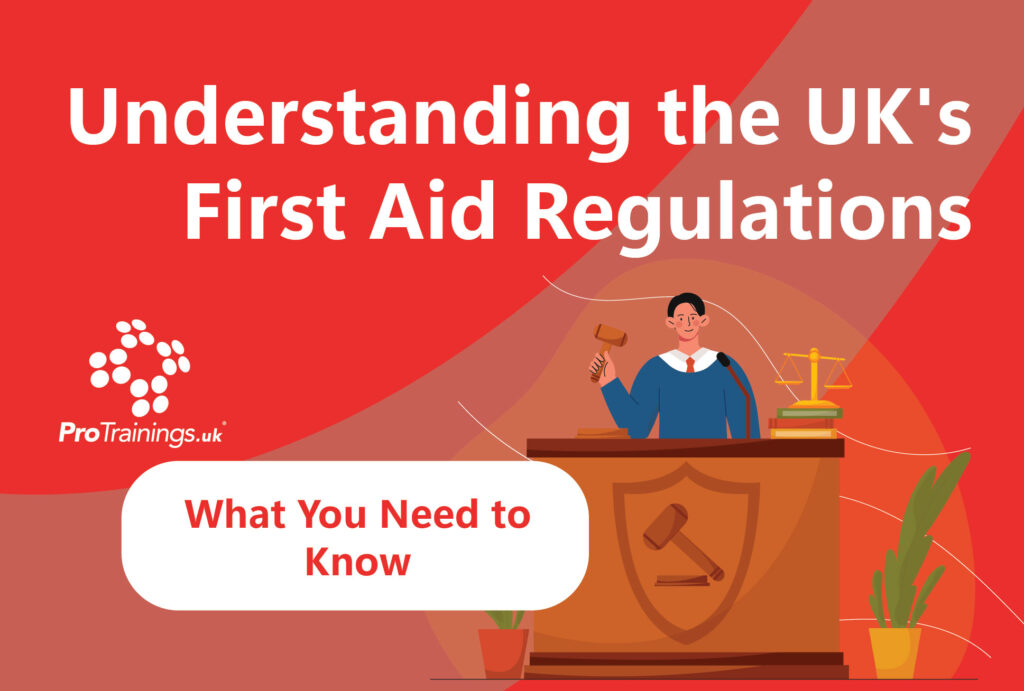Understanding the UK’s First Aid Regulations: What You Need to Know
First aid is an essential aspect of workplace safety, and in the UK, there are specific regulations that every employer and employee should understand. These regulations ensure that in the event of an accident or emergency, there are trained individuals and adequate resources available to provide immediate assistance. This guide will help you understand the UK’s first aid regulations and what you need to know to stay compliant.
The Legal Framework
In the UK, first aid regulations are governed by the Health and Safety (First-Aid) Regulations 1981. These regulations apply to all workplaces, regardless of size or industry. The goal is to ensure that employees receive immediate attention if they are injured or taken ill at work.
Key Requirements of the First Aid Regulations
1. Provision of Adequate First Aid Equipment and Facilities
- Every workplace must have appropriate first aid equipment, such as a well-stocked first aid kit.
- The number of kits and their contents should be tailored to the workplace’s specific needs, considering factors such as the type of work being done, the number of employees, and any particular risks.
- Some workplaces may also need specialised equipment, like eyewash stations, depending on the risks involved.
2. Appointment of First Aiders
- Employers are required to assess the first aid needs of their workplace and appoint an appropriate number of first aiders.
- A first aider is someone who has completed an approved first aid training course and holds a valid certificate.
- The number of first aiders required depends on the size of the workforce, the nature of the work, and the specific hazards present.
3. Training and Certification
- First aiders must undergo training from a reputable provider, such as ProTrainings Europe.
- The training typically covers essential first aid skills, including CPR, treating injuries, and managing emergencies.
- Certificates are usually valid for three years, after which refresher courses are necessary to maintain certification.
- Blended training is allowed to reduce the face to face time and this is available from ProTrainings and you can contact us for more information on how this applies to your workplace.
4. Information for Employees
- Employers must inform all employees about first aid arrangements in the workplace.
- This includes the location of first aid kits, the identity and contact details of first aiders, and how to access first aid in case of an emergency.
- Information should be clearly displayed in the workplace, such as on notice boards or in employee handbooks.
- Formal risk assessments need to be carried out and an assessment of your first aid requirements to work out how many first aiders and what first aid kits you require.
5. Record Keeping and Incident Reporting
- Employers should keep records of any first aid treatment provided, including details of the incident and the actions taken.
- Serious incidents must be reported to the HSE under the Reporting of Injuries, Diseases and Dangerous Occurrences Regulations (RIDDOR).
- Accurate record-keeping helps in identifying trends and potential hazards, allowing for improvements in workplace safety.
Special Considerations for Different Workplaces
Different types of workplaces may have additional first aid requirements based on the specific risks involved:
- High-Risk Environments: Workplaces such as construction sites, factories, or laboratories typically require more comprehensive first aid provisions, including additional first aiders and specialised equipment. We offer versions of the EFAW and FAW as well as special qualifications to cover high risk businesses.
- Remote or Isolated Locations: Employers must consider how quickly emergency services can reach their site and may need to provide extra training and equipment for dealing with prolonged response times.
- Large Workforces: In larger workplaces, or those with multiple floors or buildings, it may be necessary to have first aiders and equipment strategically located throughout the premises.
Penalties for Non-Compliance
Failure to comply with the UK’s first aid regulations can result in significant penalties, including fines and legal action. It is the employer’s responsibility to ensure that all first aid requirements are met, and non-compliance can lead to increased risk of injury and potential harm to employees.
Conclusion
Understanding and adhering to the UK’s first aid regulations is not only a legal requirement but also a vital aspect of ensuring workplace safety. By providing adequate first aid equipment, appointing trained first aiders, and maintaining clear communication with employees, employers can create a safer work environment for everyone. Regularly reviewing and updating first aid provisions will help ensure ongoing compliance and preparedness for any emergency.

